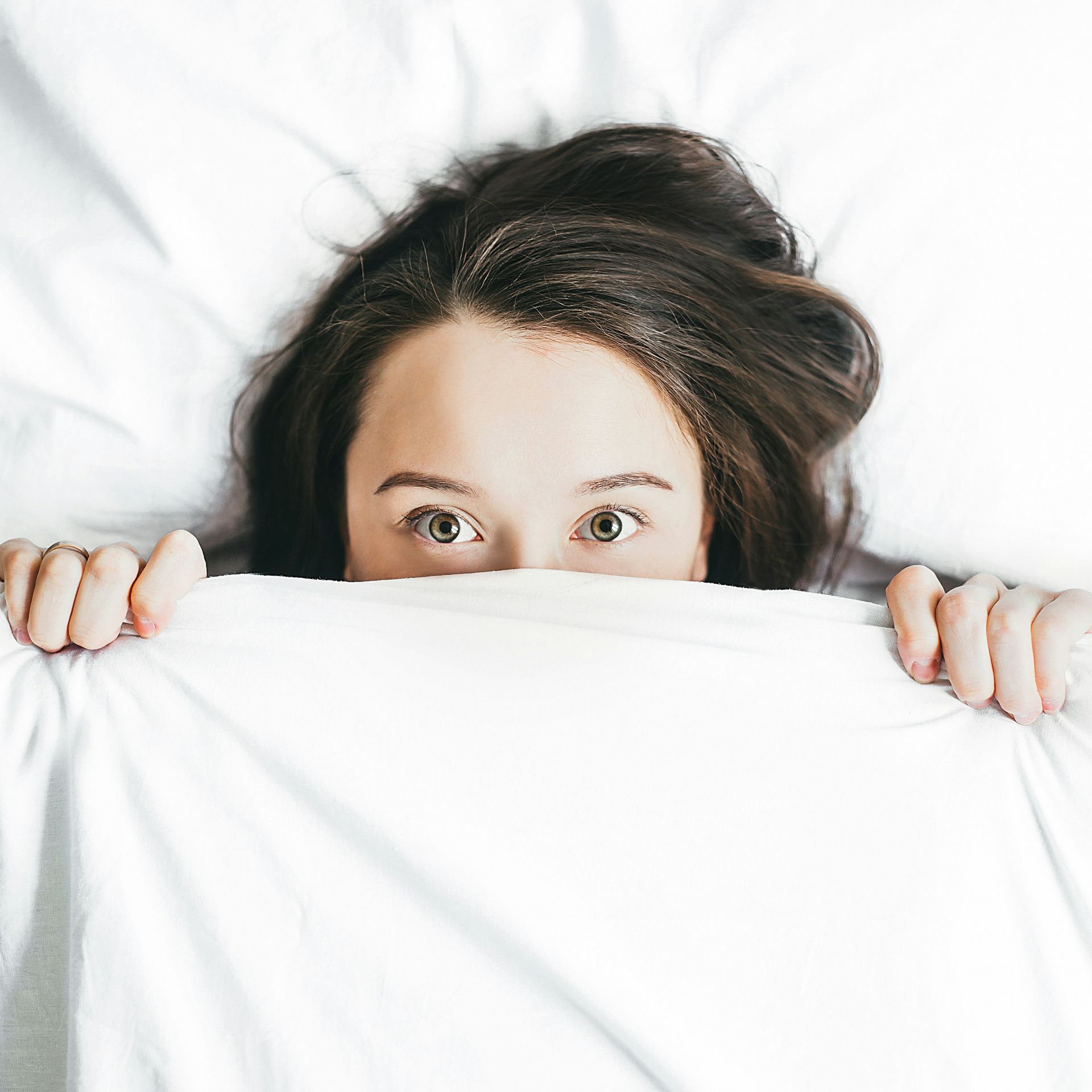A Complete Guide to Transforming Your Sleep: The Bedrock of Health and Wellness
At Rebel Performance in Guelph, Ontario, we champion the idea that optimal health and peak performance are built on a foundation of essential wellness practices, with sleep being at the forefront. Understanding the profound impact of sleep on everything from muscle recovery to cognitive function is crucial in your health and fitness journey. Let's explore in-depth strategies to elevate your sleep quality, backed by research and aligned with our commitment to holistic wellness.

Understanding Sleep Debt and Its Impact
The concept of sleep debt illustrates the cumulative effect of not getting enough sleep, leading to diminished mental and physical performance. This state of chronic sleep deficiency can affect your ability to concentrate, increase cravings for unhealthy foods, and significantly lower your energy levels, making even simple tasks feel daunting. Research consistently shows that adequate sleep is integral not only for day-to-day functioning but also for long-term health and well-being.
Comprehensive Strategies for Quality Sleep
1. Morning Sunlight for Circadian Rhythm:
Exposing yourself to sunlight shortly after waking up can have a significant impact on your sleep quality. The natural light helps synchronize your body's circadian rhythm, enhancing nighttime sleep quality. A study published in the Journal of Clinical Sleep Medicine found that exposure to natural light, especially in the morning, improves sleep efficiency and reduces the time it takes to fall asleep at night.
2. The Role of Electronic Devices:
Electronic devices emit blue light, which can interfere with melatonin production, a hormone crucial for sleep regulation. The National Sleep Foundation recommends turning off these devices at least an hour before bedtime to prevent sleep disturbances. Creating a tech-free bedroom environment can further promote a calm and restful space conducive to sleep.
3. Relaxation Techniques:
Incorporating relaxation techniques such as guided meditation, deep breathing exercises, or gentle mobility routines before bed can significantly improve sleep quality. These practices activate the parasympathetic nervous system, which helps the body relax and unwind, making it easier to fall asleep and stay asleep.
4. The Benefits of Reading:
Engaging in reading before bed can be a powerful tool in reducing stress and preparing the mind for sleep. A study by the University of Sussex found that reading can lower stress levels by up to 68%, making it an effective pre-sleep relaxation activity. Opting for physical books or audiobooks with a sleep timer can enhance this effect without the disruptive blue light from screens.
5. Contrast Therapy for Body Temperature Regulation:
We can use temperature modulation through hot and cold, to also help optimize sleep and recovery. Lowering body temperature before bed is crucial—it’s like whispering to your brain that it’s time to wind down, leading to improved sleep quality. For instance, a contrast shower, alternating between warm and cool water, feels amazing before bed if youre having trouble sleeping. Start with warm water for about 3-5 minutes to relax your muscles and increase blood flow, then switch to cool water for about 1. Repeat this 2-3 times. This cyclic alteration enhances circulation, bringing blood to the surface of the skin, and allows our body temperature to drop, preparing your body for a restorative sleep. This also helps with inflammation and recovery!
6. Daytime Physical Activity:
Maintaining a regular physical activity routine has been shown to improve sleep quality. Activities that engage the body during the day, from structured workouts to leisurely walks, can help regulate your internal clock and improve sleep patterns. However, it's important to time vigorous exercise appropriately, as engaging in high-intensity workouts close to bedtime can be counterproductive.
7. Nutritional Supplements to Support Sleep:
Certain supplements can enhance sleep quality and aid in the regulation of sleep cycles. Magnesium, known for its calming properties, can improve sleep by reducing cortisol levels. Melatonin supplements can be effective in re-aligning your body's internal clock, especially after travel or during periods of sleep disruption. Inositol, a carbohydrate found in fruits and beans, has been noted for its potential to reduce anxiety and facilitate sleep.
8. The Influence of Sleep on Diet and Cravings:
A crucial yet often overlooked aspect of sleep's impact on health and fitness is its significant influence on dietary habits, calorie consumption, and food cravings. Lack of sleep, or poor-quality sleep, can lead to increased hunger and appetite, making it more challenging to stick to healthy eating habits.
Research has consistently shown a correlation between sleep deprivation and an increased desire for high-calorie, carbohydrate-rich foods. A study published in the "American Journal of Clinical Nutrition" found that individuals who were sleep-deprived consumed more calories and had a higher preference for sweet and salty snacks compared to when they had a full night's sleep. The study suggests that sleep restriction disrupts the balance of hunger hormones, ghrelin and leptin, leading to increased hunger and appetite.
Furthermore, the prefrontal cortex, an area of the brain involved in decision-making and impulse control, is negatively affected by lack of sleep. This can result in poorer food choices and a higher likelihood of succumbing to cravings for unhealthy foods. Essentially, when we're tired, our ability to make mindful food choices diminishes, and we're more prone to reach for comfort foods that are high in sugar and fat
.
Incorporating strategies to improve sleep quality and duration can, therefore, have a profound effect not only on physical and mental performance but also on nutritional choices and overall dietary patterns. By prioritizing good sleep hygiene, individuals can support their health and fitness goals by minimizing unwanted cravings and making healthier food choices more consistently.
The Importance of Consistency
Incorporating these strategies into your daily routine can lead to significant improvements in your sleep quality and, by extension, your overall health and fitness. Remember, it's about making small, sustainable changes that build momentum and reinforce the habit of good sleep hygiene.
At Rebel Performance, we're committed to supporting you in every aspect of your wellness journey, offering guidance and accountability to help you make the most of your restorative sleep. By prioritizing sleep, you're not just investing in your night; you're setting yourself up for success every day.
Sleep well, train hard, and live better with Rebel Performance—where your best self begins with a good night's sleep.
For more tips on optimizing your health and fitness routine, visit our website and join our community in Guelph, Ontario, dedicated to wellness and peak performance.


